Feste ebraiche
-
Elul: The Penitential Season
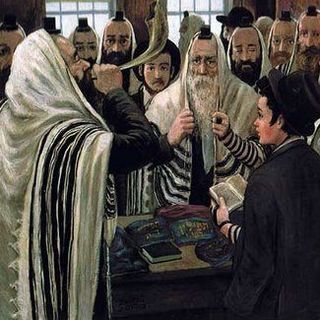 According to an ancient collection of legends (Pirkei d'Rabbi Eliezer-The Teachings of Rabbi Eliezer), the beginning of the Hebrew month of Elul marks the beginning of an especially solemn period of forty days that concludes with Yom Kippur.
According to an ancient collection of legends (Pirkei d'Rabbi Eliezer-The Teachings of Rabbi Eliezer), the beginning of the Hebrew month of Elul marks the beginning of an especially solemn period of forty days that concludes with Yom Kippur. -
How Jesus Perfected the Passover Seder
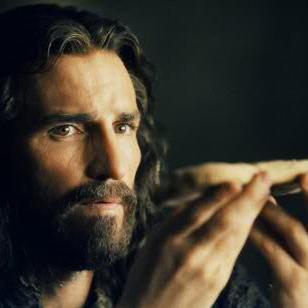 When Jesus distributed the matzo to the disciples saying, “This is My Body,” He perfected and updated the Biblical commandment to eat matzo on the Seder night, so that the commandment to eat matzo we received at Mt. Sinai would teach us how to respond to G-d as He revealed Himself through the Incarnation and the Cross.
When Jesus distributed the matzo to the disciples saying, “This is My Body,” He perfected and updated the Biblical commandment to eat matzo on the Seder night, so that the commandment to eat matzo we received at Mt. Sinai would teach us how to respond to G-d as He revealed Himself through the Incarnation and the Cross. -
Purim and Lent: Haman Hung, Christ Crucified
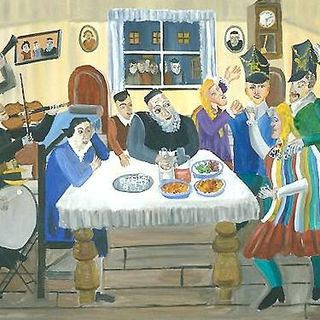 Purim is a day of ecstatic rejoicing, which the Jews celebrate as both a sign of G-d’s enduring love and a promise of their final salvation. There’s nothing in the holiday that contradicts Christian faith, except for one thing: it usually falls out smack in the middle of Lent.
Purim is a day of ecstatic rejoicing, which the Jews celebrate as both a sign of G-d’s enduring love and a promise of their final salvation. There’s nothing in the holiday that contradicts Christian faith, except for one thing: it usually falls out smack in the middle of Lent. -
Rosh Hashanah and the New Year Feasts of Israel
 The period preceding the Jewish New Year is marked by special penitential prayers, recited before the regular morning prayers, and the blowing of the ram's horn (shofar in Hebrew) after the morning prayer service...
The period preceding the Jewish New Year is marked by special penitential prayers, recited before the regular morning prayers, and the blowing of the ram's horn (shofar in Hebrew) after the morning prayer service... -
Sabbath

There is a stillness where perspective lies, where life and love are tapped, and ancient scrolls unrolled. See, the herald flame proclaims anew the healing safety of this day, and bids the Chosen learn.
-
The Feast of Hanukkah
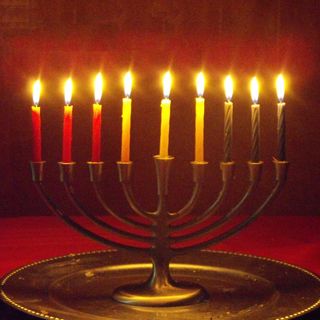 Hanukkah commemorates the 164 BCE rededication of the Second Temple in Jerusalem after its desecration by the Seleucid Kingdom, under Antiochus IV - and the re-establishment of religious freedom for the Jewish people after a period of harsh repression.
Hanukkah commemorates the 164 BCE rededication of the Second Temple in Jerusalem after its desecration by the Seleucid Kingdom, under Antiochus IV - and the re-establishment of religious freedom for the Jewish people after a period of harsh repression. -
The Feasts of Israel
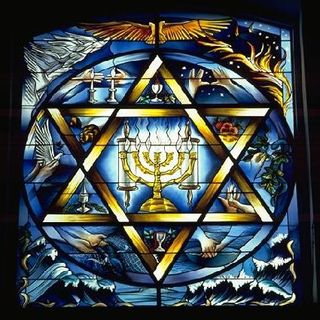 Many Christians do not realize that the seven feasts which God commanded in Leviticus 23 are still observed by their Jewish neighbors. The feasts, as given to Israel, have a multi-faceted significance. First, there was the seasonal aspect of each holiday, involving agricultural activities in the land; then the feasts were to be a memorial of God's dealings with the people of Israel; and, finally, there may be prophetic symbolism. Many Christians see parallel in God's dealings with Israel and with the Church.
Many Christians do not realize that the seven feasts which God commanded in Leviticus 23 are still observed by their Jewish neighbors. The feasts, as given to Israel, have a multi-faceted significance. First, there was the seasonal aspect of each holiday, involving agricultural activities in the land; then the feasts were to be a memorial of God's dealings with the people of Israel; and, finally, there may be prophetic symbolism. Many Christians see parallel in God's dealings with Israel and with the Church. -
The Feasts of Israel: Foreshadowing the Messiah
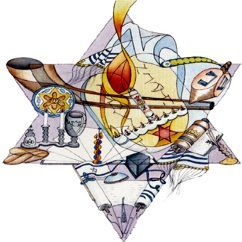 The Feasts of Israel commemorate God's deliverance of the Israelites from Egypt and his care for them during the Exodus. Yet the feasts also foreshadow God's salvation plan for humanity in Christ. This essay examines the significance of these feasts for the Jewish people as well as their messianic and typological fulfillment in Christ.
The Feasts of Israel commemorate God's deliverance of the Israelites from Egypt and his care for them during the Exodus. Yet the feasts also foreshadow God's salvation plan for humanity in Christ. This essay examines the significance of these feasts for the Jewish people as well as their messianic and typological fulfillment in Christ. -
The Jewish Holidays, Holy Week & the Ascension
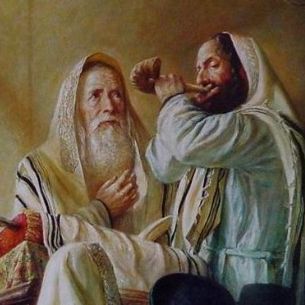 The four holidays of this coming holiday season correspond to the events of Holy Week and the Ascension. They are a figure of the great salvific events which mark the last days of Jesus’ human presence in this world. The Christian Jew participates in those saving events, and immerses himself in the Christian mysteries of salvation as he celebrates the Jewish holidays.
The four holidays of this coming holiday season correspond to the events of Holy Week and the Ascension. They are a figure of the great salvific events which mark the last days of Jesus’ human presence in this world. The Christian Jew participates in those saving events, and immerses himself in the Christian mysteries of salvation as he celebrates the Jewish holidays. -
Tisha b'Av and the God who Suffers
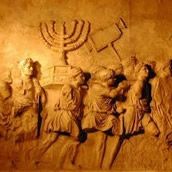 This coming Saturday night begins the fast of Tisha b'av on which we mourn the destruction of both the first and second Temples. According to the midrash, the messiah was born on Tisha b’av, when the first Temple, the Temple of Solomon, was destroyed. Something happened when the Temple was destroyed that kicked off the final redemption.
This coming Saturday night begins the fast of Tisha b'av on which we mourn the destruction of both the first and second Temples. According to the midrash, the messiah was born on Tisha b’av, when the first Temple, the Temple of Solomon, was destroyed. Something happened when the Temple was destroyed that kicked off the final redemption. -
Why the Catholic Jew Rejoices on Passover
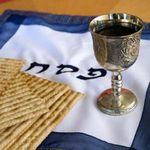 Why should the Jew who has been saved by Jesus celebrate his redemption from Egypt? What meaning could the statement in the Haggadah that we should regard ourselves as having participated personally in the Exodus, possibly have for him? What can the redemption from Egypt give him that he has not already received through the Cross?
Why should the Jew who has been saved by Jesus celebrate his redemption from Egypt? What meaning could the statement in the Haggadah that we should regard ourselves as having participated personally in the Exodus, possibly have for him? What can the redemption from Egypt give him that he has not already received through the Cross?
